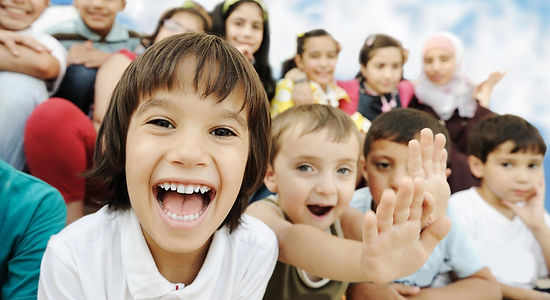GET INVOLVED
Through the media and Internet, larger audiences than ever before watch, read about and listen to events. Public service announcements, in-stadium videos and banners, half-time shows, publications and event websites can leverage the power of sport to realize tangible advances for children, especially those most disadvantaged. Fundraising for child and adolescent programs, tapping into corporate social responsibility and working with sponsors of sports events provides additional avenues for spreading messages about CHILD RIGHTS.



THE COMMITMENT TO
A “RIGHT TO PLAY”
“State's Parties recognize the right of the child to rest and leisure, to engage in play and recreational activities appropriate to the age of the child and to participate freely in cultural life and the arts.” Not only do children have the right to play, but States must also “encourage the provision of appropriate and equal opportunities for cultural, artistic, recreational and leisure activity.” Article 31 of the Convention on the Rights of the Child (1989)
As part of their commitments to promoting healthy lives and providing quality education, world leaders at the United Nations Special Session on Children in May 2002 agreed to:
-
“Promote physical, mental and emotional health among children, including adolescents, through play, sports, recreation, artistic and cultural expression.”
-
“Provide accessible recreational and sports opportunities and facilities at schools and in communities.” - ‘A World Fit for Children’ (2002)
-
“The practice of physical education and sport is a fundamental right for all.” - Article 1 of the International Charter of Physical Education and Sport (UNESCO, 1978)

A PRACTICE FOR LIFE
Through sport, recreation and play, children and adolescents learn to exercise judgement and think critically while finding solutions to problems. They promote the spirit of friendship, solidarity and fair play, teaching teamwork, self-discipline, self confidence, trust, respect for others, leadership and coping skills. Essential to ensuring that children develop into responsible and caring individuals, they help young people meet the challenges they face and prepare them to assume leadership roles within their communities.


Sport and recreational activities are powerful tools in promoting equality for all and understanding of diversity. When the focus is on scoring a goal, working with teammates or shooting a basket, children are able to shift their focus from everyday stresses, challenges or disabilities to collaboration and teamwork. When combined with focused health initiatives, recreational sports can also be used to educate communities on ways to promote health and the importance of proper nutrition.


